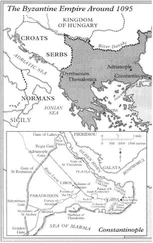Tom Harper - Siege of Heaven
Здесь есть возможность читать онлайн «Tom Harper - Siege of Heaven» весь текст электронной книги совершенно бесплатно (целиком полную версию без сокращений). В некоторых случаях можно слушать аудио, скачать через торрент в формате fb2 и присутствует краткое содержание. Жанр: Исторический детектив, на английском языке. Описание произведения, (предисловие) а так же отзывы посетителей доступны на портале библиотеки ЛибКат.
- Название:Siege of Heaven
- Автор:
- Жанр:
- Год:неизвестен
- ISBN:нет данных
- Рейтинг книги:5 / 5. Голосов: 1
-
Избранное:Добавить в избранное
- Отзывы:
-
Ваша оценка:
- 100
- 1
- 2
- 3
- 4
- 5
Siege of Heaven: краткое содержание, описание и аннотация
Предлагаем к чтению аннотацию, описание, краткое содержание или предисловие (зависит от того, что написал сам автор книги «Siege of Heaven»). Если вы не нашли необходимую информацию о книге — напишите в комментариях, мы постараемся отыскать её.
Siege of Heaven — читать онлайн бесплатно полную книгу (весь текст) целиком
Ниже представлен текст книги, разбитый по страницам. Система сохранения места последней прочитанной страницы, позволяет с удобством читать онлайн бесплатно книгу «Siege of Heaven», без необходимости каждый раз заново искать на чём Вы остановились. Поставьте закладку, и сможете в любой момент перейти на страницу, на которой закончили чтение.
Интервал:
Закладка:
He reached us and made the sign of the cross. ‘Good morning, brothers.’
‘What happened here?’ I asked.
He looked around, as if seeing the wreckage for the first time. ‘Praise God, the Holy Spirit moved in the hearts of the faithful last night and roused them like a great wind. As one, they rose from their camp and set out on the road to Jerusalem.’
‘And this?’ I gestured to the ruin.
‘Whatever they could not take they burned. They will not be coming back.’
‘So Duke Godfrey has gone …’
‘And the Duke of Normandy, and the Count of Flanders, and Tancred-’
‘Tancred was in Count Raymond’s service,’ I interrupted.
‘He left it — they all left. I was the only one who stayed behind, to tell you what has happened. And now that I have done so …’ He put his fingers in his mouth and whistled. A grey horse, which had been grazing on the sweet grass by the river, trotted over. The priest lifted himself into the saddle, with surprising ease for a holyman, and took the reins. As his cassock rode up over his boots, I saw the glint of spurs on his heels.
He offered a crooked smile. ‘Tell Count Raymond this: the time for vanity and hesitation has passed. If any man from his army, knight or peasant, wishes to see Jerusalem, let him hasten after us: the other princes will welcome his service. But there will be no more delays now. They must come quickly, before the whole world falls away to ash.’
He turned his horse and kicked its flanks. Dust and cinders billowed up behind him as he left, so that the pale horse and its pale rider vanished in the cloud. By the time it had settled again he was gone, though the drum of his hoofbeats seemed to echo for a long time afterwards in the valley. Not only echo, but grow louder, swelling out until they sounded all around me.
I looked around, and saw the reason. It was not the departing priest I had heard, but Count Raymond, galloping down towards us with a score of his knights and nobles behind. They thundered over the bridge, then reined themselves in.
‘What has happened here?’ Raymond demanded. His face was white, glistening with sweat. He gestured up to the promontory behind us. ‘Have the Saracens done this?’
I told him what I had heard, though he barely seemed to listen. He paced his horse around me, this way and that, glancing distractedly at the remains of Duke Godfrey’s camp. His knights kept their distance and watched.
Only when I had finished did Raymond go still, though he would not look at me.
‘Tancred went?’ he said bleakly.
I nodded.
‘ He took an oath to me! ’ A terrible groan, like the cry of a wounded boar, tore the air. Raymond doubled over in his saddle, clutching his arms to his stomach, then suddenly jerked upright and threw out his hands as if grasping at the air for balance. The men around him drew back.
‘They have abandoned me,’ he whispered.
One of his knights edged tentatively forward. ‘They have only been gone a few hours. If we march quickly we could overtake them by sunset and join our armies for the final charge.’
‘And what about Arqa?’ Raymond looked up at the walled town on its promontory above us, as inviolable as ever; then at the road winding away towards the coast and Jerusalem. A solitary tear seemed to trickle from his eye — though perhaps it was just sweat, for the sun was already hot.
‘Give orders to strike the camp.’
36
We caught up with the other princes the following day. The Flemings, Normans and Lotharingians embraced the Provencals gladly, rejoicing to see the army reunited, but Count Raymond rode in the midst of his bodyguard and remained unseen. That evening the princes concluded a peace with the emir of Tripoli, and the next day we proceeded on to the coast. This was the place the Fatimid envoy had warned us against, a treacherous spot where the rampart of the mountain met the sea in a dizzying cascade of fractured cliffs and crevices. A stiff onshore wind drove waves against the rocks, filling the air with spray, while sea birds called mournful cries from above. Here the road seemed to disappear into the rock: even standing at the foot of the mountain, we could not see where it went until our guide showed us a path, which the breaking waves had carved out of the cliff. It was little more than a ledge, barely two feet above the surging sea and scarcely wide enough for two men to walk even in single file. The stronger gusts of wind whipped the waves so high that they overflowed onto the path, so that boiling white water foamed about our feet, snatching and sucking at our ankles as it tried to drag us into the sea. When a few men lost their balance and fell screaming into the water, no one dared leap in to save them; we could only watch them drown.
Yet even that was not the limit of its defences. At the very tip of the headland, where the path dwindled almost to a sword’s width, our Roman ancestors had built a gate-house to command the road. Its ancient stones were wet and black with age; one wall seemed to grow out of the cliff itself, the other plunged straight into the sea.
‘ Raz-ez-Chekka ,’ said our guide, pointing to it. He giggled. ‘The Face of God. Only the worthy will pass.’
Duke Godfrey crossed himself. ‘The gates is narrow and the way is hard,’ he murmured.
I shivered, and I was not alone. In that lonely, perilous place I could almost feel the terrifying weight of God’s gaze on me, searching my soul for its infinitesimal worth. The dark gates in the tower opened before me like ravening jaws, and the small windows above watched like eyes. Water bubbled around my feet; gulls called their plaintive song and the waves roared in my ears. Dizziness broke over me, so that even as I stood still the tower seemed to rush closer. Helpless, I stared into its eyes. They were not cruel, nor angry, nor even sad: only unfathomably empty. Then — I swear — one of them winked. I gasped; the world spun away and the sea rushed up to swallow me.
A Varangian hand grabbed my shoulder, and stout arms hauled me back. I blinked, rubbing the salt from my eyes. In front of me, the tower stood where it always had, and a white gull perched on the sill of one of the windows.
‘The Egyptian was right,’ said Sigurd. ‘Six men could hold that tower until Judgement Day.’
But the tower was empty, and the rotten bar that held the gates gave easily under a few blows. Worthy or not, we passed through unhindered.
Perhaps the Franks had been right: perhaps God did will them on. Certainly it felt so during those last weeks of May: after the twenty months we had taken to crawl the hundred miles between Antioch and Arqa, we managed twice that distance in only twenty days. Every obstacle suddenly seemed to fall away from our path, so much that I began to wonder what had ever held us back. Narrow passes through the mountains, which a hundred Saracens could have held against the entire human race, stood undefended; fresh springs flowed with such abundance that the whole army could not exhaust their supply. Even the seasons seemed altered: though it was only the middle of May, the harvest had already ripened. In the orchards, boughs yielded up their fruits, while the wheat in the fields seemed to bow down before our approach, each stalk willingly offering its neck to our sickles. We hardly needed the emperor’s grain ships, whose white sails kept pace with us on the western horizon as we marched down the coast.
I do not mean to give the impression that it was easy — of course there were hardships. The same sun that fattened the wheat burned our skins and parched our throats. The bountiful land could also be treacherous. One evening we made our camp by a stony river bank: in the night, a host of fiery snakes slithered out from the stones and bit many of the army. They died horribly, bloated out so far you could hear the joints snapping inside them. At Sidon, the Saracen garrison sallied out unexpectedly and massacred a company of pilgrims as they foraged. And our holy road was no defence against the usual trials of life. Horses went lame, milk soured, men quarrelled. But against the storms that had ravaged us before, these were nothing: spring squalls forgotten almost before they had passed. They could not stem the confidence and expectation that grew in the army every day.
Читать дальшеИнтервал:
Закладка:
Похожие книги на «Siege of Heaven»
Представляем Вашему вниманию похожие книги на «Siege of Heaven» списком для выбора. Мы отобрали схожую по названию и смыслу литературу в надежде предоставить читателям больше вариантов отыскать новые, интересные, ещё непрочитанные произведения.
Обсуждение, отзывы о книге «Siege of Heaven» и просто собственные мнения читателей. Оставьте ваши комментарии, напишите, что Вы думаете о произведении, его смысле или главных героях. Укажите что конкретно понравилось, а что нет, и почему Вы так считаете.










